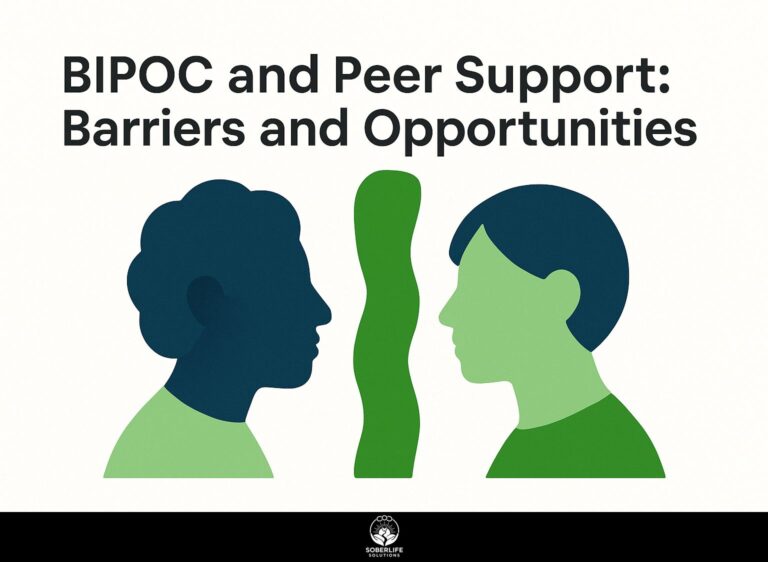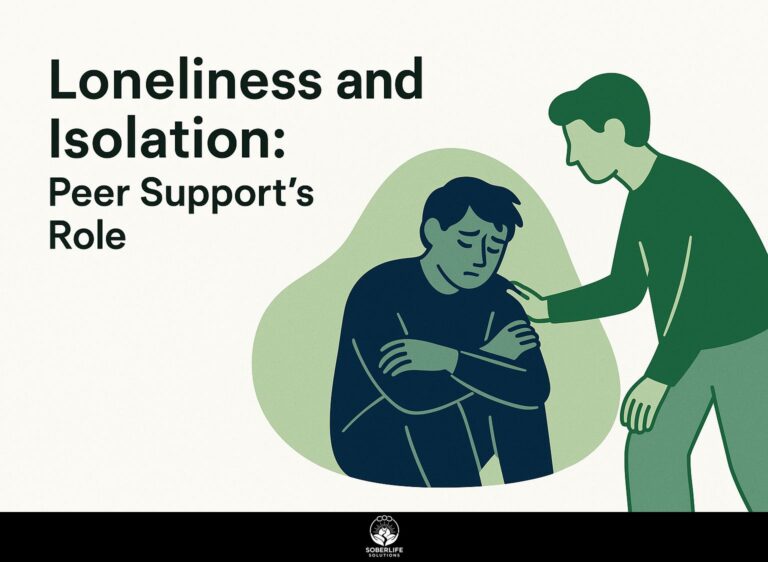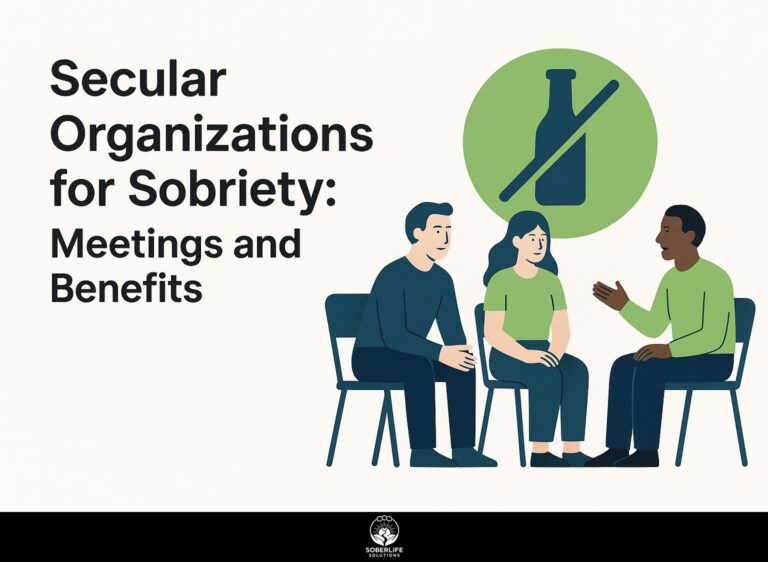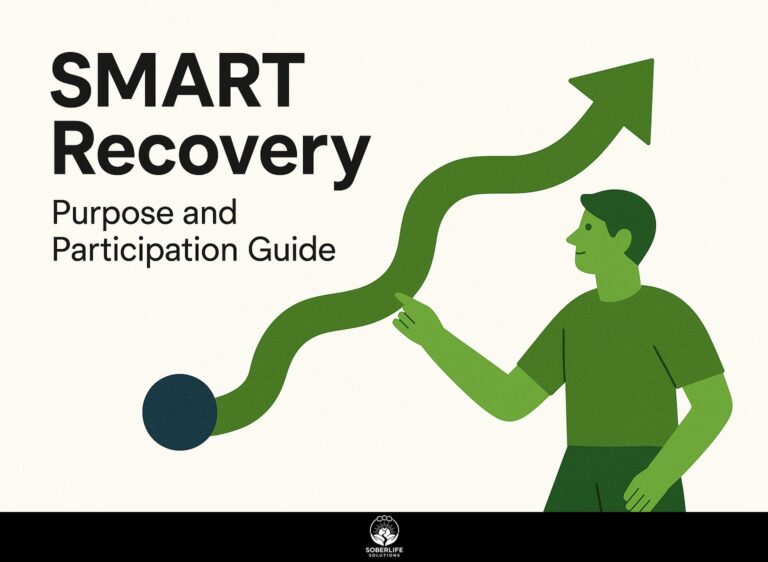Peer Support Specialists: Training and Career Paths
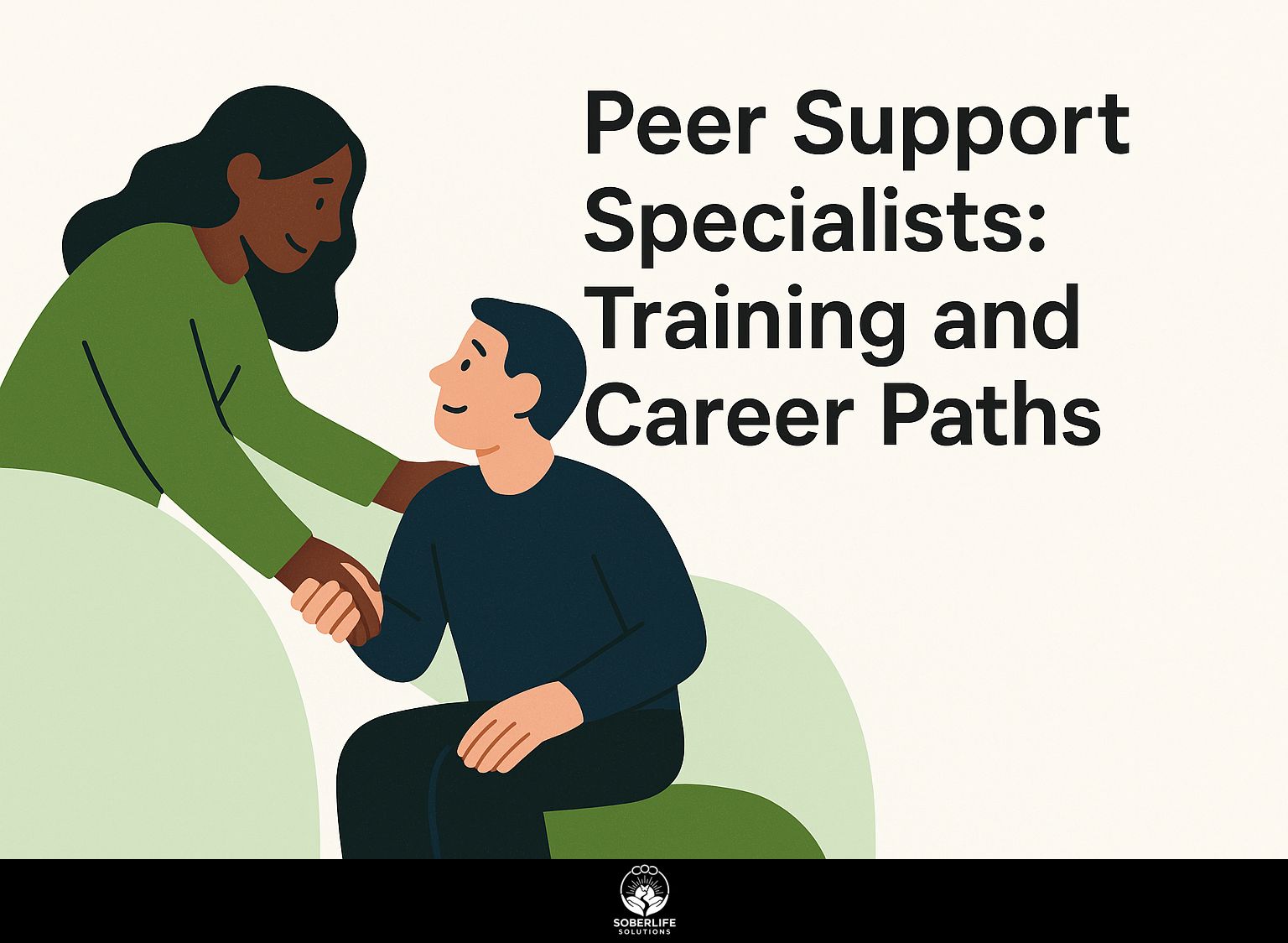
Peer support specialists are very important in mental health and substance use recovery, providing help and advice to those who need it. Through detailed training programs, individuals can become certified peer specialists with the skills to build resilience and connection. This article looks at the different career options, key skills needed, and the importance of peer support in helping recovery. Learn how this important job influences individuals and neighborhoods.
Key Takeaways:
Definition and Role
A Peer Support Specialist is a person who has personal experience and helps others dealing with mental health issues and working towards recovery.
Their main job is to build a personal connection with clients by talking about their own recovery experience to inspire hope and motivation. This includes facilitating support groups where individuals can discuss challenges and successes in a safe environment.
They also help clients create wellness plans, find coping methods, and connect with community resources. By using platforms like Zoom or local community centers for meetings, Peer Support Specialists build supportive networks that help individuals manage their recovery and improve their overall health.
Importance in Mental Health
Research shows that peer support helps people recover, with studies finding a 30% rise in participation in mental health services for those who join peer support groups.
The rise is due to the feeling of togetherness created by shared experiences. Programs like Mental Health America’s peer support groups and the National Alliance on Mental Illness (NAMI) provide structured environments where individuals can connect. As explained in a NAMI publication, these groups play a critical role in fostering a supportive community.
These groups help people talk openly and motivate them to exchange ways to handle challenges. Statistics show that 65% of people in peer support groups feel better understood, which helps reduce the stigma around mental health.
When people receive support, they are more likely to ask their peers for help.
Training Requirements
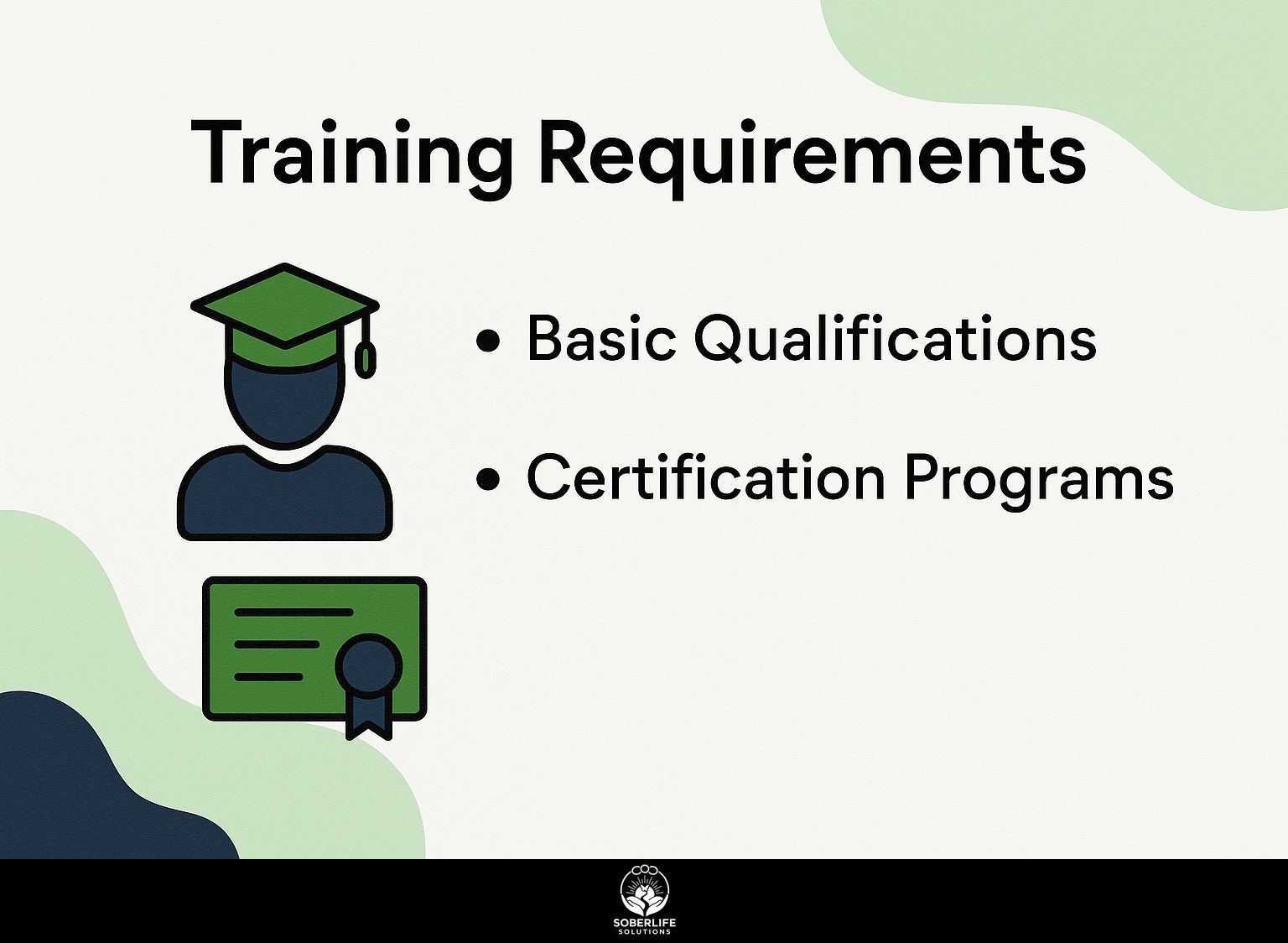
Training courses for Peer Support Specialists differ by state, often needing particular certifications for a uniform level of skill and support. For context, an in-depth analysis by the Department of Education explores the various certification procedures required across different regions. Additionally, learn more about the [certification, policies, and training](https://soberlifesolutions.com/peer-support-certification-training/) necessary for Peer Support Specialists to ensure consistent standards nationwide.
Basic Qualifications
Basic qualifications for Peer Support Specialists typically include a high school diploma, lived experience, and completion of relevant training programs.
Plus these foundational requirements, candidates often benefit from specific training in mental health first aid or trauma-informed care.
Many organizations suggest finishing certification programs like the Certified Peer Support Specialist (CPSS) credential, which can improve trustworthiness.
Mix personal experiences with useful skills to tell recovery stories that relate to others.
Good communication and careful listening abilities are important. They help specialists gain trust and effectively help their colleagues deal with difficulties.
Certification Programs
Certification programs for Peer Support Specialists typically offer both classroom instruction and practical internships, ensuring participants acquire essential skills.
Organizations like the National Association of Peer Supporters offer specific programs that focus on areas such as mental health, addiction recovery, and chronic illness management.
For instance, their ‘Certified Peer Support Specialist’ training includes modules on communication skills, ethical responsibilities, and crisis intervention. Participants complete a 40-hour training course followed by a required 60-hour internship, providing hands-on experience in real-world settings.
These organized programs make sure that Peer Support Specialists are prepared to help people manage their recovery process.
Core Skills and Competencies
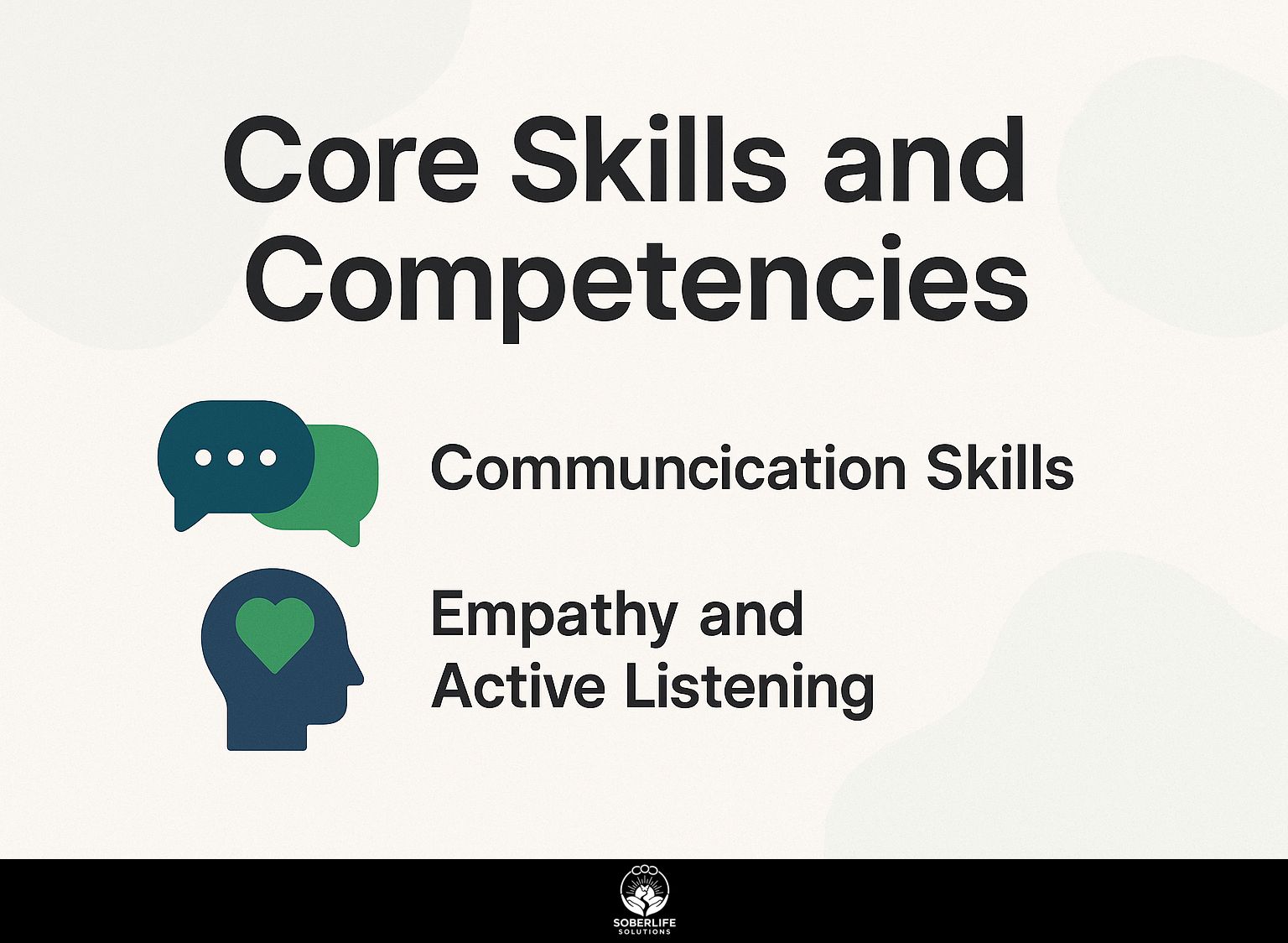
Basic abilities and knowledge are essential for Peer Support Specialists, allowing them to work well with those they help and support their healing process. For an extensive analysis of skill development and credentialing, our deep dive into certification and training programs explores how formal education can enhance these foundational competencies.
Communication Skills
Effective communication skills, including active listening and cultural competency, are essential for Peer Support Specialists to connect with diverse populations.
These professionals should listen carefully by giving full attention to the speaker and repeating what they hear to confirm they understand. For instance, paraphrasing a service recipient’s feelings can validate their experience.
Learning about cultural competency means studying and getting to know the communities you work with, allowing you to adjust your methods to fit their needs. Utilizing tools like the Cultural Competence Self-Assessment Questionnaire can help specialists reflect on their skills and identify areas for growth.
These specific strategies help build relationships, encourage trust, and result in better support results.
Empathy and Active Listening
Studies indicate that empathy and active listening are important. People who feel heard are 75% more likely to engage in helpful recovery steps.
To improve these skills, try practicing reflective listening. This involves summarizing what someone just said before responding, which validates their feelings.
Use open-ended questions like, “How did that make you feel?” This encourages deeper dialogue.
Tools like the Nonviolent Communication (NVC) method can help people show empathy. In practice, by actively interacting with those who use the service and checking their experiences, you build trust and promote a more open, supportive setting. For those interested in a comprehensive overview, Verywell Mind offers insights on how NVC can be transformative in communication.
These skills can significantly improve how well peer support services work.
Career Paths for Peer Support Specialists
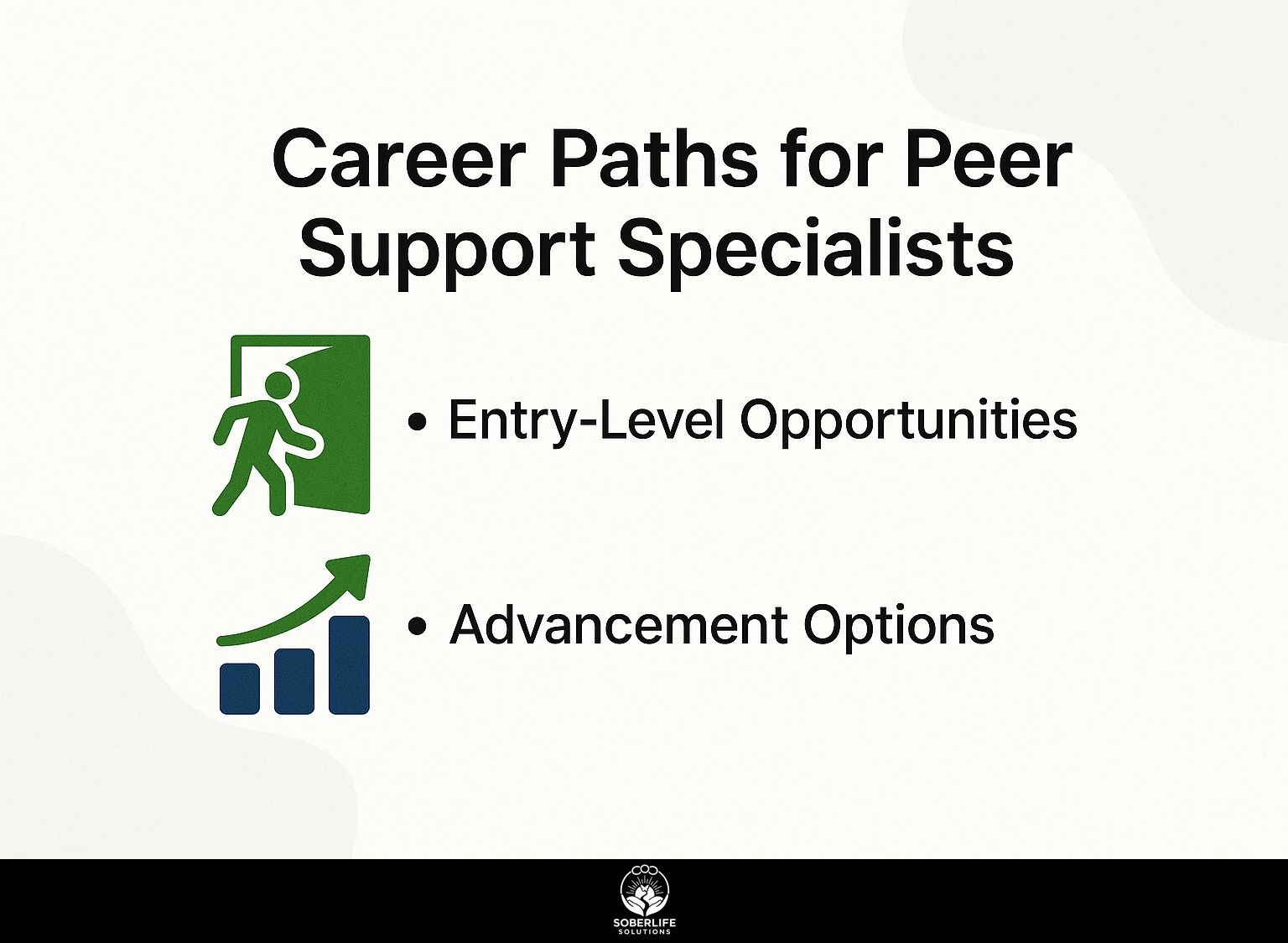
Peer Support Specialists can look into different career opportunities, moving up from starting jobs to focused positions in mental health advocacy and services. For those interested in understanding the broader impact of peer support, the history and evolution of peer support offer valuable insights into its origins and significant impact on mental health services.
Entry-Level Opportunities
Jobs like recovery coaches and support group facilitators provide essential experience and help build relationships in peer support groups.
These roles often involve helping people during recovery, telling personal stories to give hope, and leading group talks to improve community support.
For instance, a recovery coach might help clients set personal goals and connect them with resources, while a support group facilitator creates a safe space for sharing challenges and successes.
This practical experience improves communication skills and increases knowledge about mental health issues. It prepares individuals well for jobs in social services or counseling.
Advancement Options
Higher-level roles in peer support might involve taking on leadership positions, which need specific training and thorough knowledge of mental health care systems.
Peer Support Specialists can grow their careers by following certain paths. Taking classes on trauma-informed care or addiction recovery can improve their abilities.
Obtaining certifications such as Certified Peer Specialist (CPS) can open doors to higher-level roles. Education opportunities, such as workshops or degree programs in mental health, further equip specialists for leadership positions.
Participating in mentoring programs can give useful experience, helping individuals move into leadership roles where they can support newer colleagues.
Challenges Faced in the Field
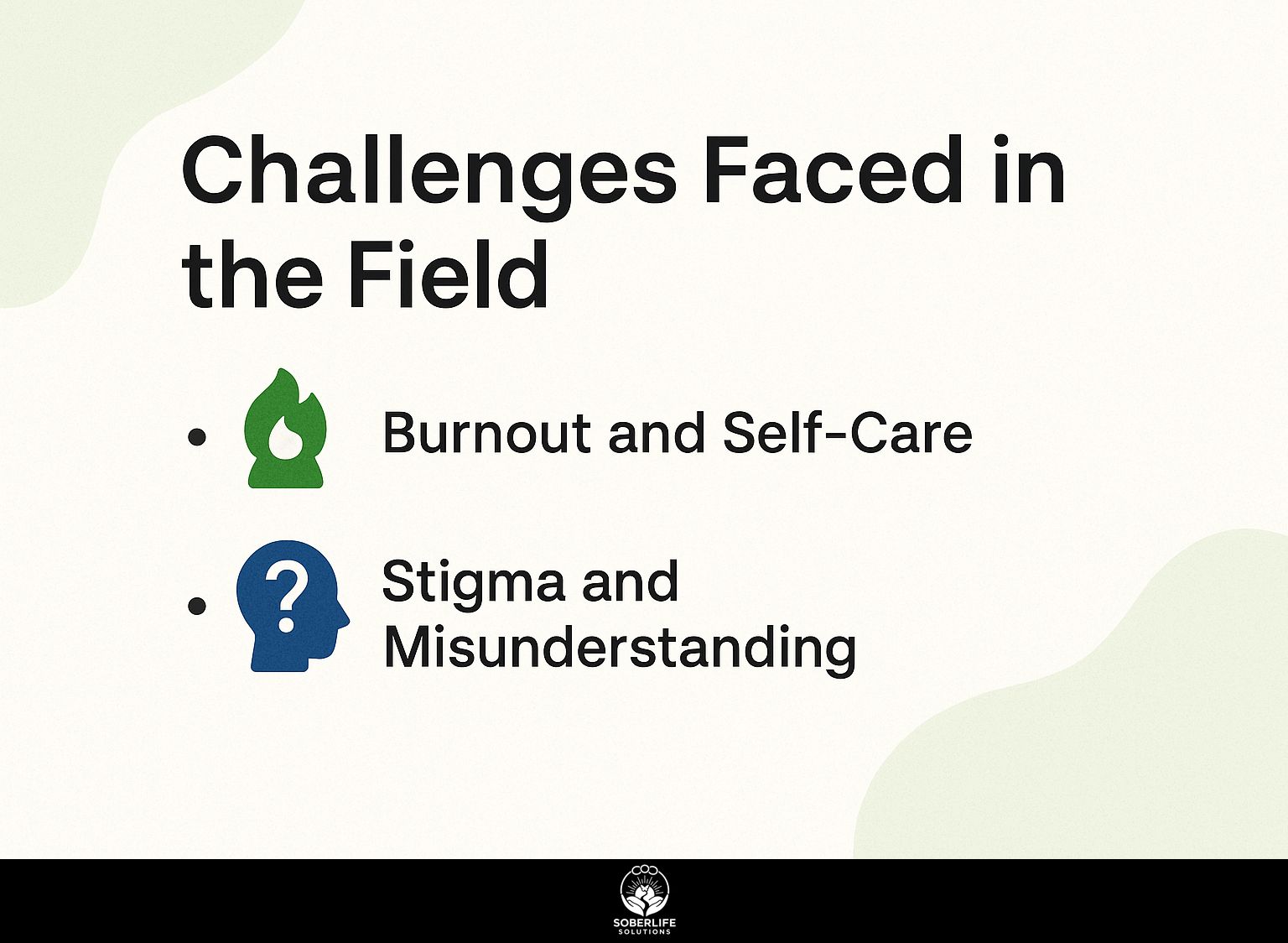
A job as a Peer Support Specialist can be fulfilling, but it also brings specific difficulties that can affect how well you do your work and your personal health. These challenges often require proper training and certification, as as mentioned in our guide on certification and training.
Burnout and Self-Care
Burnout rates among Peer Support Specialists can be as high as 60%, highlighting the necessity for effective self-care strategies and ongoing training.
To combat burnout, Peer Support Specialists should prioritize regular self-reflection and set boundaries around their emotional labor.
Writing in a journal about daily emotions can help understand what causes stress. Joining peer support groups builds community and shared experiences, which strengthens resilience. Practicing mindfulness or meditation can also help, with apps like Headspace providing guided sessions suited for people with busy schedules.
Taking regular breaks and receiving advice or mentoring can help manage work and emotional stress, supporting continued success in their jobs.
Stigma and Misunderstanding
The stigma around mental health often causes confusion about what Peer Support Specialists do, creating difficulties in promoting mental health support.
To fight stigma, Peer Support Specialists can apply different methods.
- Initially, telling personal stories can make their experiences more relatable and understandable.
- Organizing community workshops helps educate the public about mental health and the value of peer support.
- Working with local mental health organizations can help increase their visibility and resources.
- Utilizing social media channels to spread positive narratives about peer support also engages a wider audience.
In the end, ongoing support and teaching will be key in changing how people view Peer Support Specialists.
Future of Peer Support
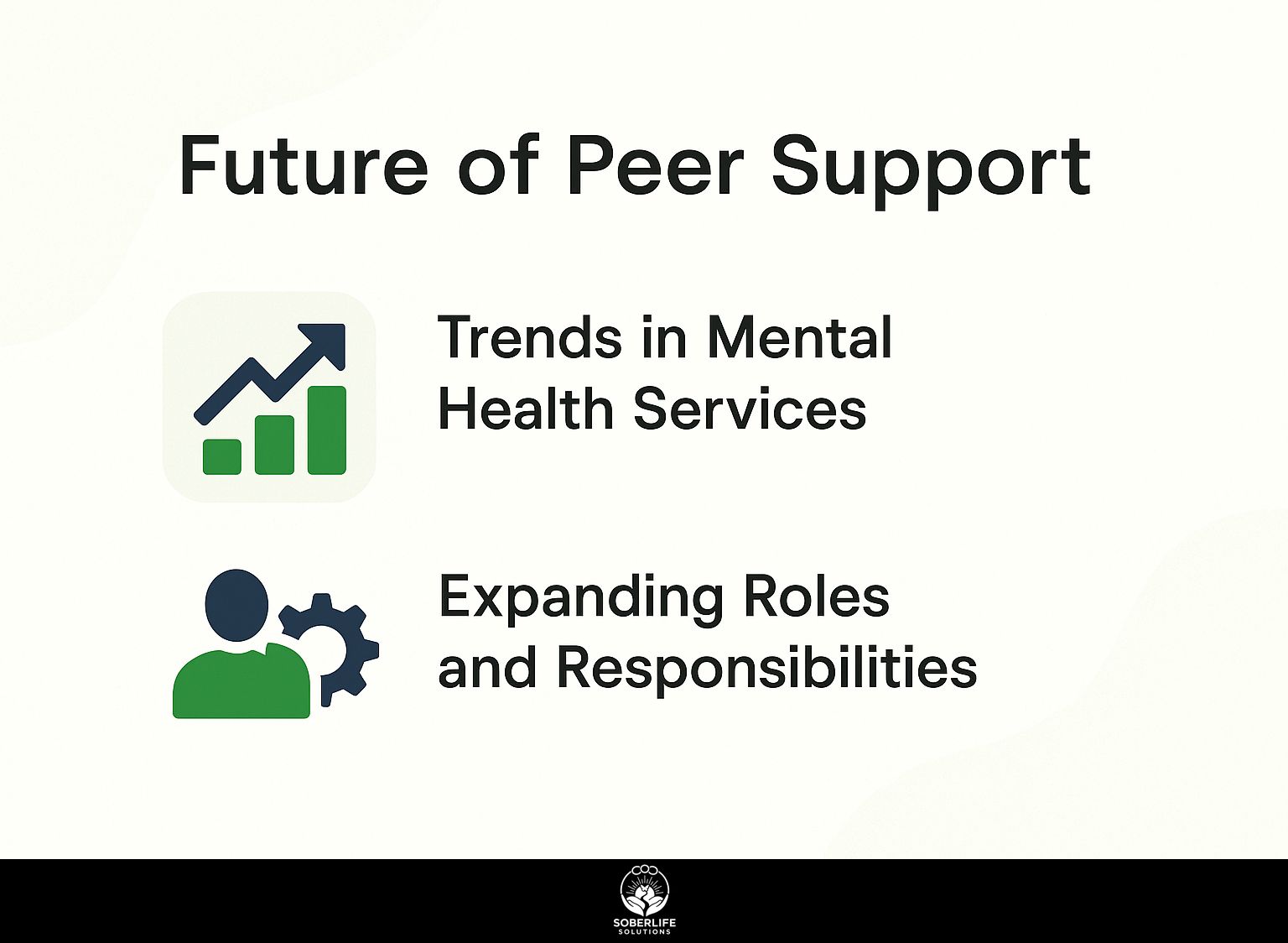
Changes in peer support focus on connecting more with mental health services and community groups. For instance, virtual peer support platforms are becoming increasingly popular and effective. Learn more about these digital platforms and apps and how they are reshaping peer support.
Trends in Mental Health Services
Recent trends show an increase in the integration of peer support within traditional mental health services, with 40% of facilities adopting peer-based models.
This growth is largely due to the recognition of peer support’s effectiveness in enhancing engagement and recovery outcomes.
For instance, the Mental Health Center of Denver reported a 30% reduction in hospital readmissions after implementing a peer support program.
Facilities often use training platforms like PEP (Peer Employment Project) to train individuals recovering from addiction to offer support. Technology is important; apps like `WellTrack’ help people connect with each other, providing support beyond clinics.
These integrations are changing the field of mental health, creating a more welcoming and successful setting.
Expanding Roles and Responsibilities
As mental health care evolves, Peer Support Specialists are now handling more responsibilities, like advocating for others and assisting with wellness plans.
In recent years, Peer Support Specialists have increasingly taken on roles such as developing individualized wellness plans, which can guide clients towards personal recovery goals.
For example, they might run sessions on handling stress or mindfulness methods, helping people manage their mental health. Many are acting as advocates within healthcare systems, ensuring that clients’ voices are heard during treatment planning meetings.
Tools like recovery-focused assessment sheets and online platforms for community engagement are being integrated into their work, enhancing their capacity to support clients effectively.
Frequently Asked Questions
What is a Peer Support Specialist?
A Peer Support Specialist is someone who has personally dealt with a mental health issue or substance use problem and has finished specific training to help others facing similar difficulties.
What kind of training is required to become a Peer Support Specialist?
The specific training requirements may vary depending on the state and organization. However, most programs need you to finish a recognized peer support specialist course and pass a test for certification.
What are some common career paths for Peer Support Specialists?
Peer Support Specialists can work in a variety of settings, including community mental health centers, hospitals, and substance abuse treatment centers. They may also work in peer-run organizations or as part of a mental health treatment team.
Is there room for career advancement for Peer Support Specialists?
Yes, there are opportunities for career advancement for Peer Support Specialists, such as becoming a supervisor or program manager. Some may also go on to become trainers or consultants in the field.
Do Peer Support Specialists receive ongoing training and support?
It is common for Peer Support Specialists to receive ongoing training and support to maintain their certification and develop their skills. This may include continuing education courses, workshops, and peer supervision groups.
Can Peer Support Specialists provide therapeutic services?
No, Peer Support Specialists are not trained to provide therapy or clinical services. Their role is to provide help and support in areas like managing stress, speaking up for oneself, and finding community services.


